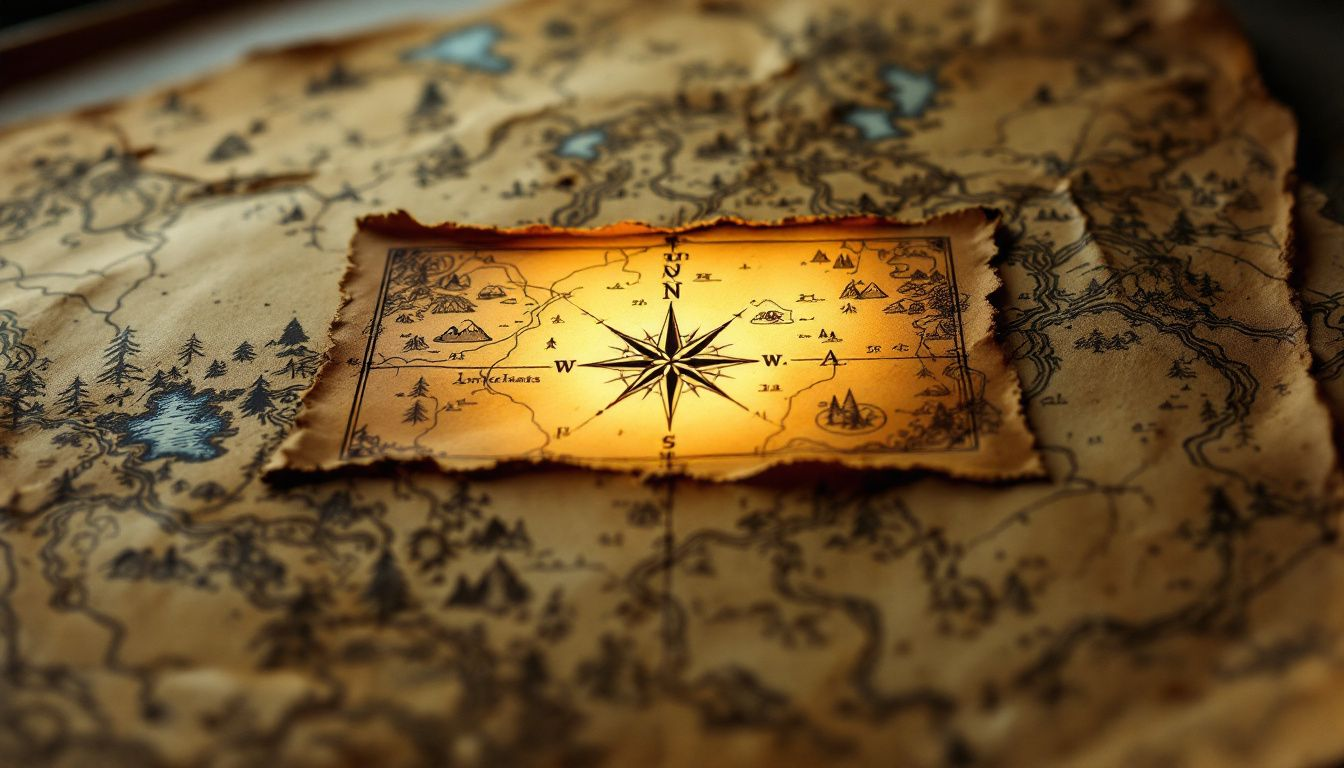Best GPS Devices for Backpacking in 2025

Whether you're trekking deep into the backcountry or exploring new trails off the grid, having the right GPS tracker isn’t just convenient—it’s essential for your safety. I’ve tested countless devices over the years, and in this guide, I’ll break down the top backpacking GPS units so you can find the one that fits your needs, budget, and adventure style.
Quick Overview of Top GPS Devices for Backpacking
Here’s a quick rundown of the best GPS devices for backpacking in 2025, each excelling in a particular category:
- Best for Budget-Conscious Backpackers: Spark Nano 7
- Best for Versatility: Tracki
- Best for Advanced Tracking Features: Spytec
- Best for Real-Time Tracking: LandAirSea
- Best for Integration with Apple Ecosystem: Apple AirTag
- Garmin inReach & eTrex: Long battery life and pro-level navigation
Spark Nano 7 - Best for Budget-Conscious Backpackers
As someone who loves getting off the grid without going over budget, I can tell you—the Spark Nano 7 is a game-changer. It’s one of the most affordable GPS trackers out there, and it still delivers the essential tracking tools you need to stay safe and connected in the wilderness. With plans starting at just $17.99/month and no long-term contracts, it’s a smart choice for backpackers who want flexibility without sacrificing peace of mind.
Rating:
- Price: 5/5
- Design: 3/5
- Features: 3/5
- Battery Life: 4/5
Pros:
- Affordable
- Essential tracking features
Cons:
- No screen
Tracki - Best for Versatility
What makes the Tracki GPS stand out is its versatility and ultra-compact size—we’re talking smaller than a memory card. Toss it in your pack, clip it to your gear, or even slip it into a pocket; it’s designed to go wherever your adventure takes you.
Tracki punches above its weight with multiple tracking modes and solid accuracy thanks to its use of cell tower triangulation and GPS. That said, like any device that depends on cellular networks, its performance can dip in remote areas where coverage is spotty. And yes, it takes a little time to get used to the interface—but once you’ve got the hang of it, Tracki becomes a reliable, go-anywhere companion on the trail.
Rating:
- Price: 4/5
- Design: 4/5
- Features: 5/5
- Battery Life: 4/5
Pros:
- Highly portable
- Multiple tracking modes
Cons:
- No screen
- Learning curve
- May rely on cell towers
Spytec - Best for Advanced Tracking Features
If you’re the kind of backpacker who wants top-tier tracking tools, Spytec GPS is built with you in mind. With features like 3D Follow Mode and detailed GPS tracking, Spytec offers a visual experience that’s hard to beat—especially when you’re navigating complex terrain or want a detailed breadcrumb trail of your journey.
Now, this level of performance does come with a learning curve. The interface isn’t the most beginner-friendly, and the price tag is higher than entry-level trackers. But for those who need precise, advanced tracking—whether for solo treks, off-the-grid expeditions, or just serious peace of mind—Spytec delivers where it counts.
Rating:
- Price: 3/5
- Design: 4/5
- Features: 5/5
- Battery Life: 4/5
Pros:
-
Advanced tracking capabilities
Cons:
- Potentially complex interface
- No screen
- Higher price point
LandAirSea - Best for Real-Time Tracking
When your backpacking trip takes you off the beaten path, LandAirSea GPS trackers shine. What sets them apart is real-time tracking that doesn’t rely on traditional mobile signals—a huge win when you're deep in the wilderness. Add in a rugged, weather-resistant design, and you’ve got a tracker that stands up to rain, dust, and rough handling without skipping a beat.
That said, this kind of power comes with a few trade-offs. The setup and interface might take some getting used to, especially for less tech-savvy users. And while subscription plans are available, they may not be the best fit for every budget. Still, if your top priorities are durability and reliable, off-grid tracking, LandAirSea is a dependable choice for serious outdoor adventurers.
Rating:
- Price: 4/5
- Design: 5/5
- Features: 4/5
- Battery Life: 4/5
Pros:
- Real-time tracking
- Robust design
Cons:
- May require technical know-how
- No screen
- Subscription plans
Apple AirTag - Best for Integration with Apple Ecosystem
If you're already in the Apple ecosystem, the Apple AirTag is a no-brainer. Setup takes seconds with your iPhone or iPad, and once connected, the Find My app gives you powerful tracking capability backed by Apple’s massive global network of devices—making it surprisingly useful even when you're off the grid.
The big wins here are seamless iOS integration and strong privacy protections—only you can access your AirTag’s location. Just keep in mind: if you're not an Apple user, you're out of luck. AirTags are designed for iOS, and their core features won’t work with Android. But for Apple fans looking for lightweight, worry-free tracking, AirTag offers a level of convenience and security that’s hard to beat.
Rating:
- Price: 4/5
- Design: 5/5
- Features: 4/5
- Battery Life: 4/5
Pros:
- Easy integration with iOS devices
- Privacy features
Cons:
- Limited to Apple ecosystem
- Dependency on other devices for full functionality
How to Choose the Right GPS Device for Backpacking
Choosing the right handheld GPS for backpacking isn’t just about specs—it’s about what’ll keep you safe, connected, and confident when you’re miles from the nearest trailhead. I’ve tested enough of these devices to know that the right features can make or break your trip.
First up: battery life. If you're planning multi-day hikes, a GPS like the Garmin eTrex SE—known for going the distance—is a smart pick. You’ll also want strong mapping capabilities: look for units that support topo maps and offline downloads so you’re never navigating blind when you lose signal.
Ease of use matters more than people think. When you’re tired or the weather turns, a straightforward interface is worth its weight in gold. And speaking of weight—go for something light and rugged like the Garmin inReach Mini 2, which packs a punch without adding bulk.
If you’re venturing off-grid, SOS capabilities are a must-have. Devices with built-in emergency alerts can connect with search and rescue teams, adding a crucial layer of safety. And don’t forget navigation extras: altimeters, electronic compasses, and topo map support all help you stay oriented and informed out there.
Understanding GPS Device Specifications

I get it—comparing handheld GPS devices can feel like decoding a wiring diagram. But don’t worry, understanding the key specs is easier than it looks—and it’s worth it when your safety and navigation are on the line.
Let’s start with battery life. It’s not one-size-fits-all. Depending on your usage and the environment, it can range from 3 to 30 days. Look for GPS units built with energy-efficient components that can stretch battery life when you need it most—especially on longer trips.
Tracking accuracy is just as important. Devices like Tracki use 4G, 3G, and 2G networks for broad coverage and consistent performance, helping you stay on course even in tricky areas. You’ll also want detailed maps and historical route tracking, so you can review where you’ve been—or plan where you’re going.
Screen size and durability matter more than you might think. A bigger screen makes maps easier to read, but it can drain your battery faster. And if you're hiking through rain, snow, or dusty trails, water-resistant models like the AirTag are great for withstanding the elements.
Finally, don’t overlook bonus features like satellite messaging or app integration. These tools can add a whole new level of safety, convenience, and real-time insights to your adventures.
Making the Final Decision
When it comes to picking the best handheld GPS for your backpacking trip, it’s all about finding the right fit for your specific needs. Think about how and where you’ll use it. Need something weatherproof and rugged? Go for a model with military-grade durability and waterproof protection. Want a device that doubles as an emergency lifeline? Look for built-in SOS capabilities that connect directly to search and rescue teams.
Don’t overlook the user experience. A simple, intuitive interface can save you time and frustration when conditions get tough. And if you're planning to sync with your smartphone, check that the companion app is reliable and offers the tracking and history tools you’ll actually use.
Finally, listen to other backpackers. Customer reviews are a goldmine for real-world insights on everything from battery life to durability and mobile app performance. Balance the feedback with your priorities—and always make sure the device fits your budget without compromising on the must-haves.
Final Thoughts: The Best GPS Trackers for 2025
At the end of the day, the right GPS tracker is more than just a tech gadget—it’s your trail partner. We’ve covered some of the best GPS options in 2025, each standing out in its own way:
- Spark Nano 7: Budget-friendly and easy to use
- Tracki: Compact and versatile with multi-network support
- Spytec: Advanced tracking features for serious hikers
- LandAirSea: Built for rugged, off-grid exploration
- Apple AirTag: Seamless tracking for iPhone users
- Garmin inReach & eTrex: Long battery life and pro-level navigation
Whether you’re navigating dense forests, remote mountain trails, or backcountry paths, there’s a GPS device here to help you stay safe, on course, and confident every step of the way.
So before you lace up your boots and hit the trail, take a few minutes to find the tracker that fits your journey. Trust me—a little planning goes a long way toward peace of mind out in the wild.
Happy hiking—and stay safe out there.
Frequently Asked Questions
Is there a GPS tracker for hiking without cell service?
Yes, there are GPS trackers like satellite communicators that work without cell service, using satellite connections for tracking. Devices like the GoTele GPS Tracker are also available and don't require a monthly fee or network for operation.
What is the best GPS device for budget-conscious backpackers?
The Spark Nano 7 is a great choice for budget-conscious backpackers because it offers essential tracking features at an affordable price. You'll get reliable navigation without breaking the bank!
Which GPS device offers the best real-time tracking?
For top-notch real-time tracking, the LandAirSea GPS device is a great choice, especially for adventurous activities like backpacking. You'll appreciate its reliability on the go!
How does Apple AirTag integrate with the Apple ecosystem?
Apple AirTag works beautifully with the Apple ecosystem by using the Find My app, enabling you to track your belongings through a vast network of Apple devices. This seamless integration makes losing items a thing of the past!
What are the key factors to consider when choosing a GPS device for backpacking?
When choosing a GPS device for backpacking, focus on battery life, mapping capabilities, and ease of use to ensure it meets your needs. These features will help you navigate confidently on your adventures.
Posted by Todd Morris on Feb 3rd 2025

